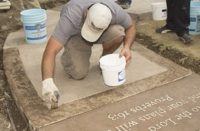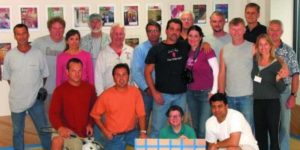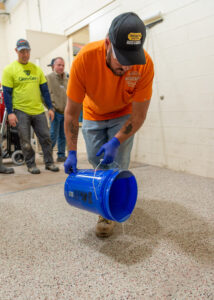
The first graduating class in the Concrete Science Technology program at the Pennsylvania College of Technology in Williamsport received their diplomas in Spring 2020. Prior to that, all seven graduates had already received great job offers, says Frank H. Reber, a construction technology instructor who heads up the two-year associate degree program at the college affiliated with Penn State.
Four have accepted jobs with a tilt-up wall company. One is considering a leading role at a concrete repair company. Another is entering under a mentor to run a mix-design plant. And the last is considering a position with a mix design firm in Colorado.
“The lowest monetary offer was $52,000, all with full benefits,” Reber says. “Three were offered $65,000 with $10,000 tuition reimbursement or a sign-on bonus.” One graduate turned down the $65,000 and is waiting on a counteroffer. “It won’t surprise me if they come back with a $70,000 offer for him to start.”
The salaries are higher than what most graduates with associate degrees are offered, Reber says. He says this is because the demand for qualified managers in the concrete sector is so high.
“The average age of a concrete guy is 58,” with an influx of new hires who are around 30 years old and still learning the ropes, he says. “The void in between needs to be filled.” And that’s the age where about half of his students fall.
Courting nontraditional students
The two-year program offered through Penn College’s School of Construction & Design Technologies is geared to help nontraditional students who are typically older adults already holding down a full-time job to support a family while also working toward obtaining a college degree. Coursework is available on campus, online or a hybrid of the two. Many courses are available in the evenings and Saturdays, with many labs scheduled on Saturdays.
The program prepares students with skills necessary to excel in producing and assessing concrete and its specified applications. Courses cover aggregate selection, admixture identification and use, and concrete products. The program places an emphasis on concrete’s specialized properties, building codes, estimating and troubleshooting prior installations.
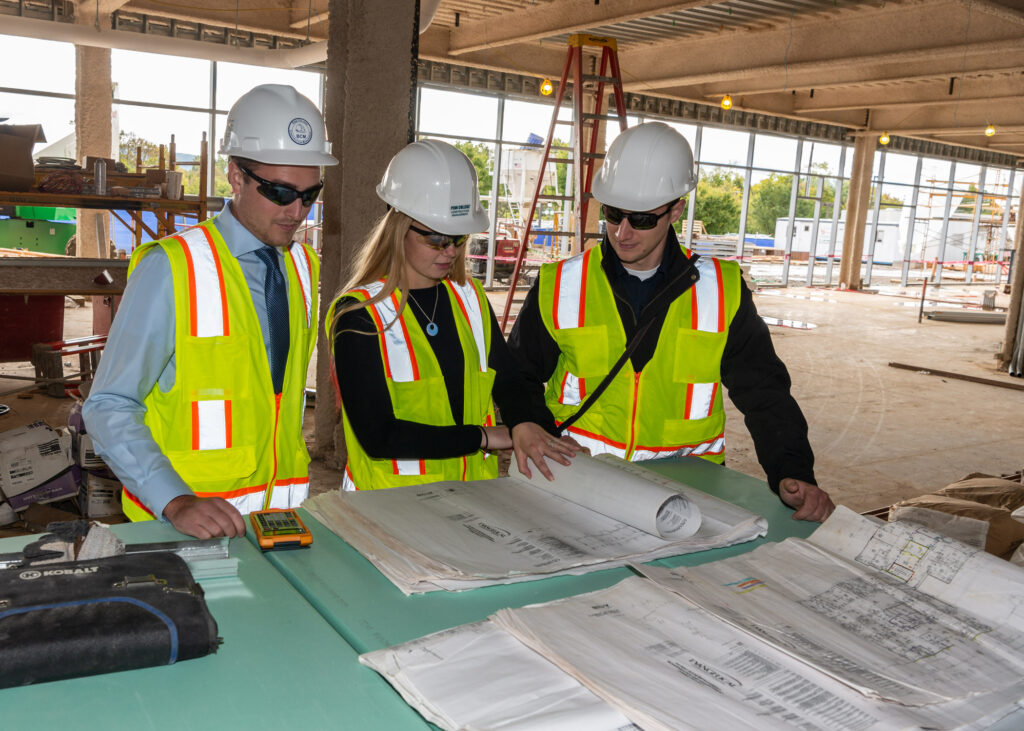
Career opportunities abound for program graduates who may choose from a variety of career paths including everything from concrete quality control, research and development and batch plant production to ready-mix, supply sales and decorative concrete.
“These job classifications differ from those having skill sets in flatwork and finishing and require a stronger knowledge of composition and application,” says Reber.
Hands-on training emphasized
Unlike some four-year bachelor’s programs based largely on theory, the concrete science technology program contains a mixture of theory, management practices and hands-on training.
“I really enjoy our hands-on training. I think this is what sets us apart from other programs,” says student Jeremiah Dyer. Dyer is a former math teacher who used to do hardscaping and masonry work during his summers. This was before switching gears to become a stay-at-home dad.
“If you can read, watch videos or see someone demonstrate how to do something, but there is nothing like doing it. Our program prepares students for what they’ll be doing in the field,” says Dyer. Dyer graduated this spring and will soon re-enter the workforce.
The concrete science technology courses focus on giving the students more of a real-life experience than what they’ll get from textbooks. “Our students learn about mix design, and how to place concrete and finish it. They know how to do it all, even how to deal with irate customers,” Reber says.
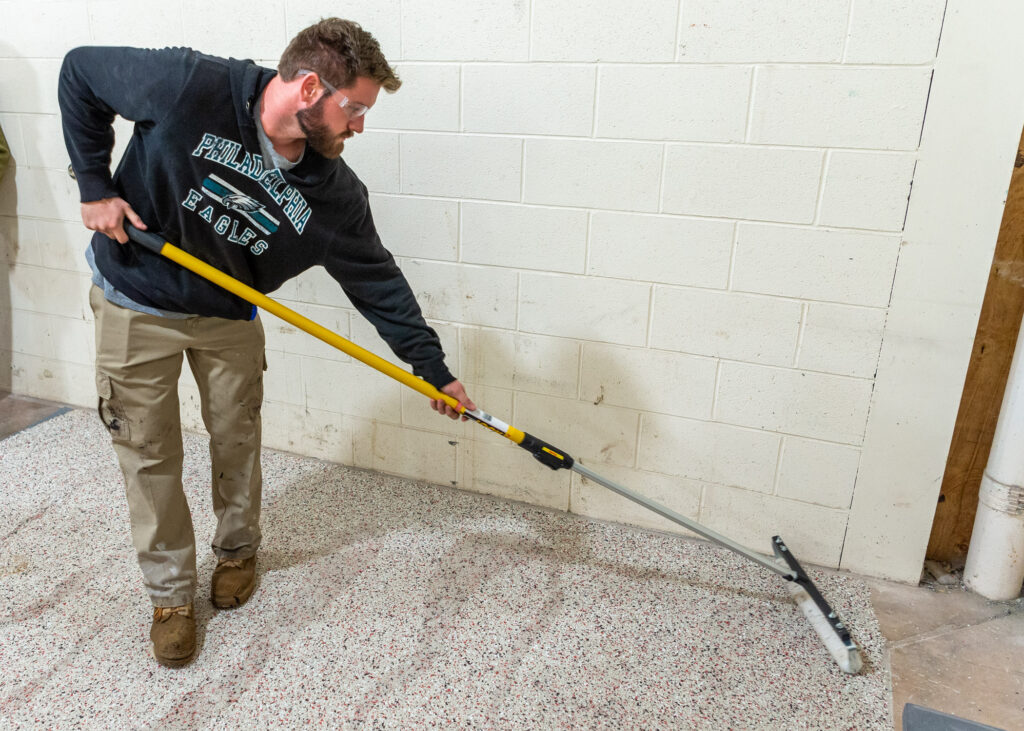
Opportunities broadened
Thanks to contributions from the concrete industry, faculty and first-year students enrolled in the program these last two years were able to go on an expense-paid field trip to the World of Concrete. “This is something I would never have been able to do otherwise,” says Dyer. “All of us in the program were blown away at all the different possibilities for careers in the industry and left with a great excitement for our futures.”
After the first year of classes, it is a requirement that students complete an internship, usually during summer. “This is another great hands-on opportunity to gain both experience and a possible job upon graduating,” Dyer says. Like most of his classmates, there was the offer of a full-time position post-graduation.
Companies that offer internships include Forcine Concrete & Construction Co., Lithko Contracting LLC, Conewago Enterprises Inc., Durable Surfaces, Castle Builders, Clayco and Delaware Valley Concrete, to name a few.
Spreading the word
The recent pandemic squelched plans to participate in the American Concrete Institute’s concrete bowling ball competition. It also put the brakes on the effort to start an ACI student chapter. It also led to the cancellation of the open house that was on the schedule for the spring.
“Our biggest problem is getting the word out to let people know we’re here,” Reber says.
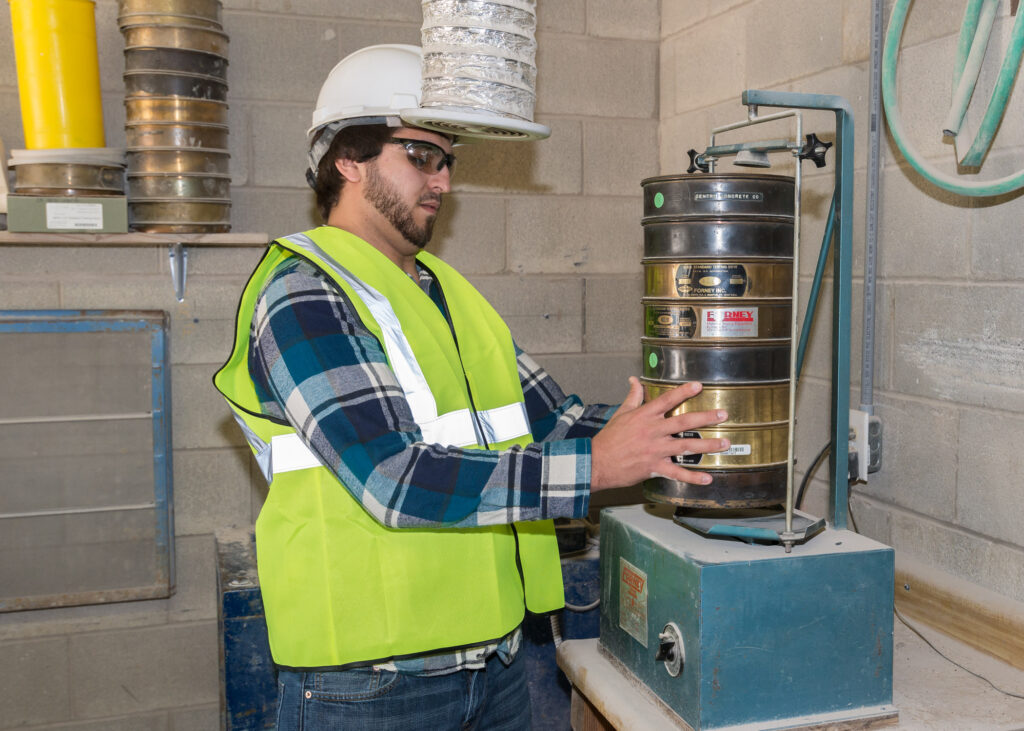
But once students like Matt Blose discover the concrete classes offered through the Concrete Science Technology program, most quickly see the potential the concrete industry has to offer.
“I enrolled at Penn College in order to pursue an entrepreneurial education,” says Blose. Blose isn’t pursuing a concrete degree, but he has taken numerous concrete classes.

“I wanted to be a leader while still being creative and doing a lot of hands-on work. I quickly saw the potential in the concrete industry just after the intro to concrete class. Taking the decorative concrete class only increased my craving for all things concrete.”
He says he plans to start a business that will likely include decorative concrete applications, specifically making countertops and tabletops. The classes he’s taken, he adds, are increasing his potential of becoming an entrepreneur.
“There’s room for enormous growth,” Blose says. “I easily see that one can become extremely successful in this field. Others interested in the construction industry (should) pursue the concrete science technology program.”
www.pct.edu/concrete
